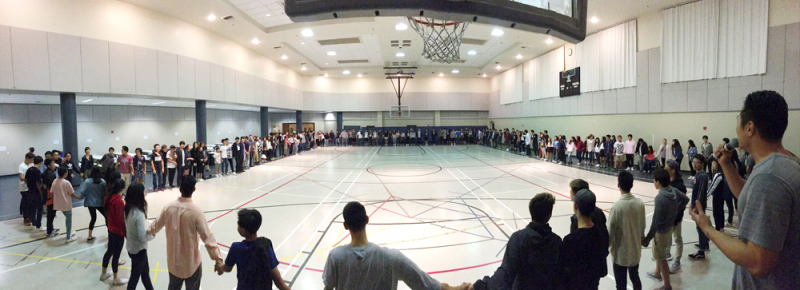
A new study reveals that moral relativism has become a "majority opinion" of the Gen Z, believing that "many religions can lead to eternal life."
The report "Gen Z: Volume 2," which Barna Group created in partnership with Impact 360 Institute, is based on their data collected between June 15 and July 17, 2020 from 1,503 respondents comprising American teens and young adults with ages 13-21, the Christian Post wrote.
The research company released its first edition of their report in 2018, Gen Z: Volume 1, seeking to help church leaders understand the next generation, Barna Group's website says.
Their 2020 findings showed that 65% or two-thirds of the respondents agree to the perception that "many religions can lead to eternal life," seven percent higher than that of their 2018 survey which recorded 58%.
Jonathan Morrow, Impact 360 Institute's director of cultural engagement and student discipleship, reacted to the study stating, "That's a dramatic shift because as Jesus clearly taught and John 14:6, 'I am the way the truth and the life and no one comes to the Father except through me.' So exclusivism in that way is part of historic Christianity. Yet the surrounding cultural context says, 'No, many religions can lead to eternal life.'"
The study also showed that 31% of teens and young adults responded "strongly agree" believing that what is "morally right and wrong changes over time, based on society," while only 25% responded the same in 2018. 43% answered "somewhat" while only 10% said they "strongly disagree."
Morrow interpreted this result saying, "That means literally moral reality ... moral truth shifts as society shifts. That will have devastating consequences for everyone trying to live according to God's good design and flourish as He designed them to function in this world as image-bearers."
Morrow described the 10% of the respondents who "strongly disagree" as a group of "convictional people in Gen Z who actually think that objective truth and morality really exist and don't change depending upon people's desires or feelings or society over time, but there is an ultimate reference point, there is an ultimate anchor to moral and spiritual reality."
"But the simple fact of the matter is, moral relativism hasn't just crept into the worldview of Gen Z. It is now the majority opinion," he pointed out.
Helping the Young Understand Morality
Morrow suggested four ways to help the young people understand and believe that morality has a "fixed reference point" in the nature, character and commands of God which is rooted in Scripture.
First, church leaders and parents should teach young people to "move beyond perceived connection to real connection" especially in this period of "digital Babylon."
He said that there are "plenty of data out there on the hyperconnectivity of this generation, at least digitally" but the reality is that young people need real relationships, accountability, friendship, empathy and understanding.
Second, teens and young adults must cultivate their skills to "move beyond what I want to hear to what I need to hear."
"Not, 'Does this make me feel good?' But, 'Is it true? Personal feelings and experiences are important, but they're not ultimate. Just because I believe or feel a certain way, it doesn't mean reality is that way," he said.
Third, young people must "move beyond 'us versus them thinking'".
And finally, Gen Z should "move beyond false tolerance to true tolerance".
"If I can come to see somebody who I might disagree with first, as an image-bearer, that changes the conversation. Virtually anywhere in our culture right now, everyone is put in a binary: Us versus them. You pick your us, you pick your them. It's opposing sides, it becomes about power, not understanding, and then they collide. That will have disastrous implications on culture, as well as the next generation and the health of our relationships," the director explained.
With merely 4% responded saying that they adhere to a Biblical worldview, the research company's 2018 study portrayed the Gen Z as "first truly 'post Christian' generation."
Morrow articulated his question asking if the Gen Z will allow the truth of God's Word and His voice to define what is real and true or if they will rely on their desires, preferences and feelings "to be the loudest voice."
He further said, "And that question comes to us as well as mentors and leaders, pastors, youth pastors, parents, educators: Will we allow God's voice, the truth of God's Word, to be the most significant voice for us? Or will we let our own preferences and desires and feelings be the loudest voice?"





















